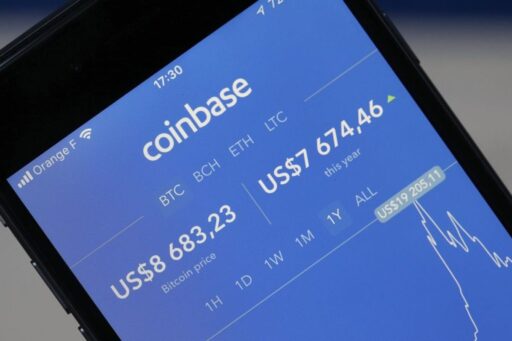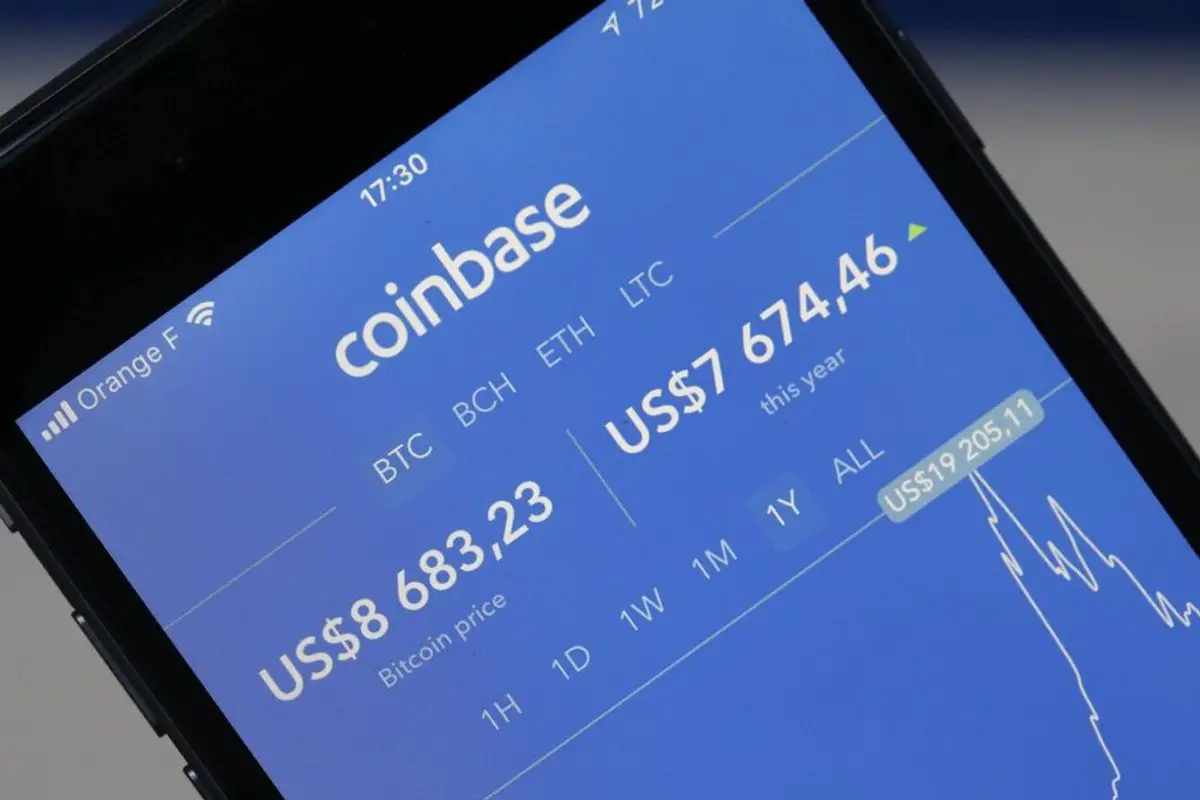Coinbase is a well-known name in the cryptocurrency industry, offering a range of services including trading, storage, and wallet functionalities. As a platform, it caters to a diverse audience, from beginners to advanced users, and provides both custodial and non-custodial wallet options. This article delves into the multi-faceted nature of Coinbase, comparing it to other platforms, examining its security features, fee structure, and overall user experience to determine whether it’s the right choice for crypto enthusiasts.
Key Takeaways
- Coinbase provides both an exchange and a non-custodial wallet, giving users flexibility in how they manage their cryptocurrencies.
- While user-friendly and legal for American users, Coinbase may not be the most private or cost-effective option for day traders.
- Coinbase’s security features include time-delayed withdrawals and vault protection, but privacy concerns remain for some users.
- Compared to competitors like Crypto.com, Coinbase offers interest-earning options on fewer cryptocurrencies and has a more limited coin selection.
- For long-term holding or occasional trading, Coinbase is suitable, but active traders might seek alternatives due to higher fees.
Understanding Coinbase as a Multi-Faceted Crypto Service

Coinbase: Beyond the Exchange
While Coinbase is primarily recognized as a leading cryptocurrency exchange, it’s important to understand that its services extend far beyond simple trading. Coinbase has evolved into a comprehensive crypto ecosystem catering to a wide range of needs, from the casual investor to the dedicated developer.
Coinbase’s suite of offerings includes:
- A secure platform for trading over 250 currencies, with a rigorous vetting process for new listings.
- The Coinbase Wallet, a non-custodial wallet giving users full control over their private keys.
- A variety of tools for businesses and developers, such as the Commerce API for accepting crypto payments and the Wallet SDK for linking decentralized apps (dapps) to Coinbase Wallet.
- Opportunities for earning rewards through crypto staking, appealing to users looking to generate passive income from their holdings.
Coinbase’s ecosystem is designed to be versatile, providing tools and services that cater to a diverse clientele, from individual users to large institutions.
The platform’s commitment to security and a broad selection of cryptocurrencies positions it as a formidable presence in the crypto market, not just as an exchange but as a holistic service provider.
Coinbase Wallet: A Non-Custodial Option
Coinbase distinguishes itself by offering a non-custodial wallet known as Coinbase Wallet. This wallet empowers users with full control over their private keys, which is akin to having exclusive access to a bank vault. You don’t need a Coinbase exchange account to use it, making it a versatile tool for anyone in the crypto space.
The Coinbase Wallet supports a wide array of digital assets, including cryptocurrencies and non-fungible tokens (NFTs). Its user-friendly interface is often lauded, making it an attractive option for both seasoned crypto enthusiasts and newcomers.
The non-custodial nature of Coinbase Wallet means that you are in full command of your digital assets and security. This independence from the exchange provides a layer of protection against hacking and unauthorized access.
Here’s a quick comparison of non-custodial and custodial wallets:
| Type | Control Over Keys | User Interface | Risk Level |
|---|---|---|---|
| Non-Custodial | Full control | Varies | Lower risk of third-party compromise |
| Custodial | Third-party control | Often user-friendly | Higher risk if service is compromised |
While non-custodial wallets like Coinbase Wallet offer significant advantages in terms of security and control, they also place the responsibility of safeguarding the keys squarely on the user. This can be a double-edged sword, especially for those who may not be as diligent with their digital security practices.
Storing Cryptocurrencies and Digital Assets
When considering the storage of cryptocurrencies and digital assets, it’s essential to understand the distinction between an exchange platform and a wallet. Coinbase provides both services, offering users a comprehensive solution for their digital currency needs.
A crypto wallet is akin to a digital vault, safeguarding your cryptocurrencies like Bitcoin or Ethereum. It’s not just about storage; it’s about security and management of your digital wealth. Coinbase’s success is attributed to its wide range of supported currencies, user-friendly platform, and eligibility in multiple countries. This has positioned it as a go-to for many users looking to store and manage their assets.
While exchanges like Coinbase facilitate the buying and selling of crypto, they also offer wallet services that emphasize security. Employing best practices such as two-factor authentication and safeguarding private keys is crucial.
For those seeking additional security, the use of a ‘cold’ wallet, which is disconnected from the internet, is recommended. This minimizes the risk of online threats, though it comes with the responsibility of managing access credentials carefully. Alternatives like Voyager offer benefits like interest on held cryptocurrency, but the choice ultimately depends on individual needs and preferences.
Comparing Coinbase to Other Crypto Platforms and Wallets

Coinbase vs. Crypto.com: A Wallet Comparison
When comparing Coinbase and Crypto.com as wallet services, it’s essential to consider various factors such as security, control, and the ability to earn interest on your holdings. Both platforms offer non-custodial hot wallets, which means users have full control over their private keys, akin to a bank PIN. This is a critical aspect for many crypto enthusiasts who prioritize security and autonomy over their digital assets.
Both Coinbase and Crypto.com follow industry best practices in terms of security, but their insurance policies differ, especially regarding assets in cold storage.
Coinbase’s interest-earning options are more limited compared to Crypto.com, which allows customers to earn interest on a wider variety of cryptocurrencies. This could be a deciding factor for users looking to maximize their passive income through staking or similar mechanisms.
Here’s a quick comparison of the two services:
| Feature | Coinbase | Crypto.com |
|---|---|---|
| Security | Industry standard | Industry standard |
| Private Key Control | Yes | Yes |
| Interest-Earning Options | Limited | Extensive |
Ultimately, the choice between Coinbase and Crypto.com will depend on individual preferences and priorities, such as fees, available cryptocurrencies, and specific user needs.
Coinbase vs. Cash App: Differing Approaches to Crypto
When it comes to choosing a platform for cryptocurrency transactions, Coinbase and Cash App cater to different user needs. Coinbase is a dedicated crypto exchange offering a wide array of services, while Cash App integrates Bitcoin transactions within a broader financial ecosystem.
Coinbase stands out with its extensive cryptocurrency selection and advanced trading features, making it a preferred choice for those seeking a comprehensive crypto experience. On the other hand, Cash App’s simplicity and integration with payment services make it suitable for users looking for basic Bitcoin transactions alongside everyday financial activities.
While both platforms are secure, Coinbase goes a step further by providing additional protections such as insurance and cold storage for digital assets.
Here’s a quick comparison of key features:
- Cryptocurrency Selection: Coinbase offers a vast range of cryptocurrencies, whereas Cash App is limited to Bitcoin.
- Trading Tools: Coinbase provides advanced tools for seasoned investors, while Cash App keeps it simple.
- Payment Methods: Coinbase accepts multiple payment methods, with some incurring extra fees; Cash App’s options are more straightforward.
- Security: Coinbase has robust security measures including insurance and cold storage; Cash App employs encryption and fraud detection.
Assessing Coinbase’s Competitors in the Market
When considering alternatives to Coinbase, it’s important to weigh the pros and cons of each competitor. Coinbase’s competitors offer varying features that cater to different user needs, from lower fees for frequent traders to more advanced trading tools for seasoned investors. For instance, platforms like Crypto.com are often highlighted for their competitive fee structures and rewards programs.
- Crypto.com vs. Coinbase: Known for lower fees and a rewards program.
- Binance: Offers a wide range of cryptocurrencies and advanced trading features.
- Kraken: Praised for its security measures and low fees for high volume traders.
While Coinbase is a solid choice for beginners due to its user-friendly interface, those looking to minimize costs or seeking advanced trading options might find better alternatives elsewhere.
It’s also crucial to consider the long-term strategy for your cryptocurrency investments. If day trading is your focus, finding a platform with minimal fees is essential. However, for those planning to hold onto their crypto for the long haul, Coinbase’s ease of use and security features may still make it a viable option.
The Security Aspect of Using Coinbase

Coinbase’s Security Measures for Users
Coinbase prioritizes the security of its users’ assets through a multi-layered approach. Two-factor authentication (2FA) is mandatory, adding an extra layer of security beyond just a password. This means that even if a password is compromised, unauthorized access is still unlikely without the second form of identification, such as a code sent to the user’s phone.
Coinbase’s commitment to security extends to the storage of cryptocurrencies:
- 98% of crypto funds are kept in cold storage, significantly reducing the risk of online hacks.
- The remaining funds in hot wallets are insured, providing an additional safety net for users.
Coinbase’s security infrastructure is designed to protect users from emerging threats, with features like security key support, password protection, and multi-approval withdrawals in the Coinbase Vault.
As a regulated exchange, Coinbase operates with transparency and accountability. Its financials are audited quarterly, and it adheres to strict encryption and security protocols to safeguard user assets.
The Debate on Privacy and Control Over Assets
When it comes to Web3 wallets, security and control are paramount. Users must navigate the trade-off between the ease of use provided by custodial services and the sovereignty offered by non-custodial options. Custodial wallets, while user-friendly, often mean that users cede control of their private keys, potentially exposing them to risks if the service is compromised.
Non-custodial wallets, on the other hand, grant full control over private keys and funds, but place the onus of security squarely on the user. This responsibility includes not only safeguarding the keys but also ensuring regulatory compliance and understanding the nuances of exchange protocols.
The balance between privacy and transparency is a core aspect of Web3 wallets, with privacy protecting user data and transparency ensuring the immutability of transactions on the blockchain.
Here’s a quick comparison of the pros and cons of each wallet type:
| Wallet Type | Pros | Cons |
|---|---|---|
| Custodial | Easy-to-use, Seamless service connection | Cede control, Risk of service breach, Privacy concerns |
| Non-Custodial | Full control, Reduced hacking risk | Sole responsibility for security, Risk of fund loss |
Ultimately, the choice between custodial and non-custodial wallets hinges on the user’s comfort with personal responsibility in security, their desire for control, and their understanding of the technology involved.
Time-Delayed Withdrawals and Vault Protection
Coinbase offers enhanced security features to ensure the safety of user assets. Time-delayed withdrawals add an extra layer of security by requiring a waiting period before funds can be moved out of the account. This delay allows users to cancel unauthorized transactions before they are completed.
Coinbase Vault is another robust security measure, designed for users who want to store large amounts of cryptocurrencies. The Vault requires multiple approvals for withdrawals, which can be from different email addresses, adding a collaborative aspect to the security protocol.
The combination of time-delayed withdrawals and the multi-approval Coinbase Vault system provides a powerful deterrent against unauthorized access and theft.
Here’s a quick comparison of Coinbase’s security features with another popular platform, Crypto.com:
| Feature | Coinbase | Crypto.com |
|---|---|---|
| Cold Storage | 98% | 100% |
| Insurance | Yes, including FDIC for U.S. dollar funds | Yes, including FDIC for U.S. dollar funds |
| Bug Bounty | Yes | Yes |
| Multi-factor Authentication | Yes | Yes |
While both platforms offer robust security measures, Coinbase’s unique time-delayed withdrawals and Vault protection stand out as distinctive features that cater to users prioritizing security for their digital assets.
Coinbase Fees and User Experience

Understanding Coinbase’s Fee Structure
Coinbase’s fee structure is often seen as complex, particularly for those new to the world of cryptocurrency trading. The platform charges what is known as the Coinbase Fee, which can either be a flat fee or a variable percentage based on several factors such as the user’s region, the product being used, and the chosen payment method. Understanding these fees is crucial for traders looking to optimize their returns.
Coinbase operates two distinct exchanges: the original Coinbase platform and Coinbase Pro, each with its own fee schedule. In June 2022, Coinbase introduced Advanced Trade, aimed at replacing Coinbase Pro, with a different fee structure designed to cater to more experienced traders.
Here’s a simplified breakdown of the fees you might encounter on Coinbase:
- Flat fees for transactions under a certain threshold.
- Variable fees based on payment method, region, and whether you’re using Coinbase or Coinbase Pro.
- Network fees for wallet-to-wallet transactions, which are estimated upfront but may vary.
While Coinbase provides an estimate of the network fees at the time of a transaction, the actual fee may differ. It’s important for users to review the fee details provided during the transaction process to avoid surprises.
For larger transactions, fees can reach up to 1% of the transaction value, which may be prohibitive for high-volume traders. Coinbase’s lack of transparency regarding the exact calculation of these fees has been a point of criticism among users.
Is Coinbase User-Friendly for Crypto Beginners?
Coinbase has established itself as a leading platform in the cryptocurrency space, not only for its comprehensive exchange services but also for its user-friendly approach. For beginners in the U.S.A., Coinbase offers an accessible entry point into the world of cryptocurrency. Its intuitive interface simplifies the process of buying, selling, and managing digital assets, which can be particularly daunting for those new to the space.
- The Coinbase wallet is known for its seamless experience, both on mobile and via a browser extension.
- Built-in access to decentralized applications (dApps) provides users with a broader range of functionalities.
- Educational resources are readily available, helping users to understand the market and make informed decisions.
While Coinbase is praised for its simplicity and security, it’s important to note that it may not be the most cost-effective option for frequent trading due to its fee structure. However, for those looking to buy and hold cryptocurrencies, the platform’s ease of use and robust security measures make it a strong contender. As cryptocurrency exchanges in 2024 focus on maker and taker fees, transparency, and security, Coinbase stands out for its user-friendliness and educational resources.
Despite the higher fees associated with Coinbase, many users find the trade-off for a beginner-friendly and secure environment worthwhile. Advanced Trade features are also available for those looking to minimize fees as they become more accustomed to the platform.
Day Trading on Coinbase: A Cost Analysis
For those considering day trading on Coinbase, understanding the fee structure is crucial. While Coinbase is lauded for its user-friendly interface and robust security measures, it is often criticized for its fee schedule, which can be prohibitive for frequent traders. Here’s a breakdown of the fees for advanced trades based on 30-day trading volume:
| 30-Day Trading Volume (USD) | Taker Fee | Maker Fee |
|---|---|---|
| Up to $10,000 | 0.60% | 0.40% |
| $10,000 to $50,000 | 0.40% | 0.25% |
| $50,000 to $100,000 | 0.25% | 0.15% |
| $100,000 to $1,000,000 | 0.20% | 0.10% |
While Coinbase offers a straightforward platform for beginners, the fees can quickly erode profits from day trading. It’s important to consider whether the convenience of Coinbase justifies the potential cost.
Coinbase’s competitors, like Crypto.com, also offer a range of cryptocurrencies and safety measures, but with lower fees that may be more attractive to active traders. However, it’s essential to stay informed about the regulatory challenges that platforms like Coinbase face, which can impact your trading experience.
Making the Choice: Should You Use Coinbase?

Legal Considerations for American Users
When considering Coinbase for cryptocurrency transactions, American users must navigate a complex legal landscape. Coinbase operates within a nuanced legal framework in the United States. While it isn’t entirely outside the bounds of legality, its compliance with Know Your Customer (KYC) and Anti-Money Laundering (AML) regulations allows it to function as a registered financial service.
Coinbase’s decision to exclude privacy coins such as Monero from its platform underscores its commitment to transparency and adherence to public trade registration requirements. This is a critical consideration for users who prioritize privacy in their transactions.
The legal status of cryptocurrency trading in the U.S. is not black and white, and Coinbase’s policies reflect a careful balance between user convenience and regulatory compliance.
For American users, understanding the legal implications of using Coinbase is essential. The platform’s compliance with regulations like the General Data Protection Regulation (GDPR) and California Consumer Privacy Act (CCPA) affects how personal data is managed. Users agreeing to Coinbase’s terms are also consenting to the arbitration of disputes, a detail that should not be overlooked.
Evaluating Coinbase for Long-Term Cryptocurrency Holding
When considering Coinbase for long-term cryptocurrency holding, it’s important to weigh the platform’s user-friendliness against its cost structure. Coinbase is often recommended for those new to cryptocurrency due to its accessible features and services. However, seasoned traders may find the platform’s fees less appealing for frequent trading.
For long-term holders, the security of assets is a paramount concern. Coinbase provides a range of security features, including two-factor authentication and insurance in case of a security breach. Yet, it’s worth noting that Coinbase is not the most private option for holding cryptocurrencies like Bitcoin, where other wallets may offer better privacy.
- User-friendly for beginners
- Higher fees compared to some competitors
- Strong security measures
- Less privacy for certain cryptocurrencies
While Coinbase may not be the cheapest option for day trading, it can be suitable for purchasing and holding crypto assets over an extended period.
Alternatives to Coinbase for Active Traders
For active traders seeking alternatives to Coinbase, the market offers several platforms that may align better with their trading strategies and fee preferences. Binance, Kraken, Kucoin, and Bittrex stand out as popular choices, each with its own fee structures and trading features.
Active traders often prioritize low fees, advanced trading tools, and deep liquidity. It’s essential to compare these aspects when choosing a trading platform.
Here’s a quick comparison of some key features that active traders might consider:
| Platform | Fee Structure | Advanced Trading Tools | Liquidity |
|---|---|---|---|
| Binance | Tiered based on volume | Yes | High |
| Kraken | Maker-taker fees with volume incentives | Yes | High |
| Kucoin | Dynamic based on level and volume | Yes | Moderate |
| Bittrex | Flat fee with discounts for high volume | Yes | Moderate |
Remember, while fees are a significant factor, they should not be the sole criterion for choosing a trading platform. Security, user experience, and the range of available cryptocurrencies are also critical considerations.
Conclusion
In summary, Coinbase serves as both a platform for trading and investing in cryptocurrencies and as a wallet for storing them. With the Coinbase Wallet, users have access to a non-custodial wallet option that supports a variety of digital assets, including NFTs, without the need for an exchange account. While Coinbase is user-friendly and compliant with American legal standards, it may not be the most cost-effective choice for day traders due to its fee structure. For those seeking privacy or lower fees, alternative wallets and platforms may be more suitable. However, for casual investors or those new to the crypto space, Coinbase offers a secure and convenient entry point. Ultimately, whether you use Coinbase solely as a platform or also as a crypto wallet depends on your individual needs and preferences in the evolving digital currency landscape.
Frequently Asked Questions
Is Coinbase only an exchange platform, or can it also be used as a crypto wallet?
Coinbase serves as both an exchange platform and a wallet service. It offers a non-custodial wallet called Coinbase Wallet, which is separate from the exchange and can be used to store cryptocurrencies and other digital assets like NFTs.
Can anyone use the Coinbase Wallet?
Yes, anyone can use the Coinbase Wallet, even if they do not have an account with the Coinbase exchange. It is a highly rated wallet option that supports a variety of digital assets.
How does Coinbase compare to other wallets like Crypto.com in terms of supported cryptocurrencies?
While both Coinbase and Crypto.com support a wide range of cryptocurrencies, Crypto.com offers interest on over 40 different coins and tokens, whereas Coinbase’s interest-earning options are more limited.
Is Coinbase a private way to hold cryptocurrency?
Coinbase is not considered a private way to hold cryptocurrency. For users who prioritize privacy, there are other wallets that offer better privacy features. However, Coinbase is user-friendly and offers a relatively safe space for those willing to sacrifice some privacy.
Are the fees on Coinbase suitable for day trading?
Coinbase’s fee structure is considered steep for day trading. If you plan to trade frequently, you may want to look for a platform with lower fees. However, Coinbase may be suitable for those looking to buy and hold cryptocurrency for the long term.
What are some of the main competitors to Coinbase for beginners looking to trade crypto?
Coinbase competes with various other cryptocurrency wallets and exchanges that are beginner-friendly, such as Crypto.com, Cash App, and others. Each platform has its own set of features, fees, and supported assets, so it’s important to compare them to find the best fit for your needs.





